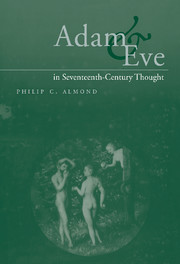4 - Animalia
Published online by Cambridge University Press: 18 November 2009
Summary
A ZOOLOGICAL GARDEN
And God made the beast of the earth after his kind, and cattle after their kind, and everything that creepeth upon the earth after his kind.
Genesis 1.25In 1661, in a pamphlet entitled Paradise Transplanted and Restored, its anonymous author reported to his readers on a model ‘of that Beautifull Prospect Adam had in Paradice’ shown at Christopher Whitehead's at the two wreathed posts in Shooe Lane in London. It was so perfect that, without indignation, one could not imagine the serpent putting the deadly apple into Eve's hand. And it was a Paradise filled with animals, ‘placed from the greatest to the least, from the Elephant to the Mouse, from the Eagle to the Wren, from the Crocodile to the Glow-Worm; with all sorts or kinds of Insects, and Creeping Things’. In short, it represented Paradise as a biological encyclopedia.
In spite of the image of Paradise as an enclosed garden with animals excluded, the zoological Eden predominated. In modern terms, it was more of a safari park than a garden. Representations of an Eden full of ‘wild life’ (which it then wasn't) were common in Renaissance printed Bibles. The frontispiece to Genesis in the Geneva Bible in 1583, for example, was packed with animals – elephants, lions, leopards, wolves, lambs, cattle, bears, camels, goats, deer, monkeys, rhinoceroses, and so on, an image of nature reposing and benign.
- Type
- Chapter
- Information
- Adam and Eve in Seventeenth-Century Thought , pp. 110 - 142Publisher: Cambridge University PressPrint publication year: 1999
- 1
- Cited by

